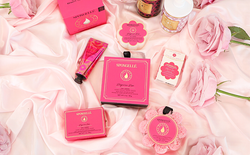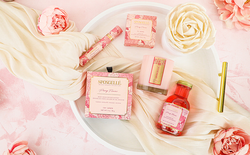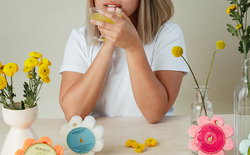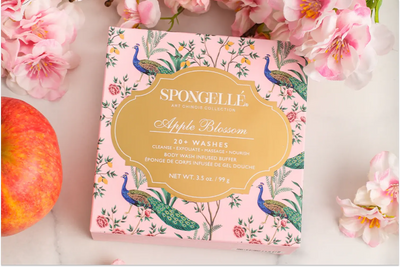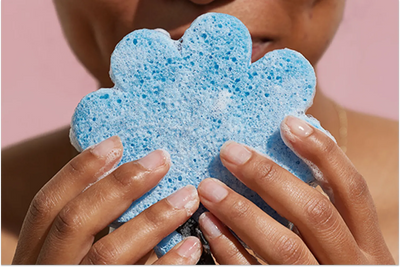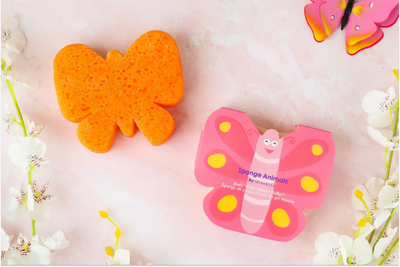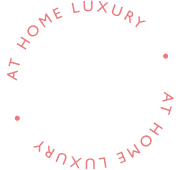Today, many companies are choosing to stand against animal testing on their products more than ever before. Decisions like this make us thrilled to be a part of the growing stance on awareness. The beauty industry is beginning to prioritize vegan ingredients and cruelty-free cosmetics more than ever, as have many other industries.
The words “cruelty-free” and “vegan” have become increasingly popular among beauty brands in the last few years due to the high demand for these types of products, especially cosmetics and personal care items. For many people, though, the words “cruelty-free” and “vegan” may seem a little confusing, so we’ll decipher the two and break down the differences below.
What Does Cruelty-Free Mean?
Cruelty-free means that a product and its ingredients went through development without being tested on animals. This testing includes animal testing on either the finished product or a component within the finished product’s ingredients. It determines the product’s safety and the effects of its hypoallergenic properties.
Often, mice, rabbits, rats, monkeys, and guinea pigs are utilized for these types of testing. These tests often negatively affect the animal, so animal rights activists and other people oppose it. Cosmetic animal testing practices are banned in many parts of the world, such as the UK and Colombia.
Sadly, there is no legal definition for the term cruelty-free, and no one regulates its labels. Anyone can use a “cruelty-free” product label and mean whatever they want it to mean.
What Does Vegan Mean?
If a beauty product claims to be vegan, the product doesn’t include any animal-derived ingredients or animal byproducts. People practice veganism for various reasons, some being ethical, religious, political, cultural, economic, and health-related reasons. A vegan product is not necessarily vegetarian and vice versa. You can find out whether a product is vegan by checking its ingredient list.
What Does It Mean To Be a Vegan?
A vegan doesn’t consume meat, eggs, dairy, honey, or any other food product derivative of an animal, and veganism is an extension of vegetarianism. Vegan diets should include a balance of vegetables, fruits, nuts, seeds, legumes, and grains.
There are several variations of veganism, such as Ovo-Lacto vegetarian, Ovo-vegetarian, and Lacto-vegetarian. Some vegans eat dairy while avoiding eggs, while others consume eggs and avoid dairy, and Ovo-Lacto vegetarians consume both eggs and dairy.
Vegans do not wear furs, leather, wool, or silk and don’t use any products made with ingredients from animals. They also do not use products tested on animals or products filtered using animal parts, such as white sugar, wine, and beer.
Vegan vs. Vegetarian Products
The difference between vegan and vegetarian products is similar to the diets themselves. A vegan product does not contain any ingredients or by-products from animals. Vegetarian products do not have any components from animals; however, they can contain animal by-products or ingredients produced by animals. Examples include:
- Beeswax - A vegetarian ingredient that is not vegan because it comes from bees.
- Gelatin - Neither vegan nor vegetarian because it is derived from animal collagen.
Can a Product Be Cruelty-Free & Vegan?
Products that are not tested on animals and do not contain any animal ingredients or by-products are considered cruelty-free and vegan. An example of this is Spongelle Papaya Yuzu Vegan-Friendly Boxed Flower. This body wash and buffer-in-one is an all-in-one beauty treatment containing a time-released lather.
The cruelty-free and vegan extracts of yuzu, edelweiss, and vetiver blend seamlessly to provide a rich, creamy lather that cleanses, nourishes, exfoliates, and massages all in one.
Can a Product Be Cruelty-Free But NOT Vegan?
Cruelty-free beauty products that make no mention of being vegan are typically not vegan.
This product was not tested on animals, but it does contain some ingredients derived from animals or animal by-products.
Many cosmetics and personal care products are cruelty-free but not vegan. It is crucial to read the labels of products before using them to determine if the ethicality of the product is to your standards.
Can a Product Be Vegan but NOT Cruelty-Free?
Vegan products do not contain any ingredients that are derived from animals or animal by-products. If that vegan product is not cruelty-free, it means that the product may have been tested on animals. Many large brand companies market vegan products that are not cruelty-free.
For example, a large cosmetic company in the US is also sold in mainland China, where imported items must be tested on animals. This company paid and consented to Chinese authorities to perform these animal tests on their behalf to sell their products in the US and China.
Again, this is an example of why it is crucial to inspect the labels of products you use and research the brands you trust and their practices.
Is It Illegal for Brands To Deceive Consumers About Being Cruelty-Free or Vegan?
Sadly, there are no legal definitions or standards for the labels “cruelty-free” and “vegan.” Brands may use these labels in whichever way they see fit to their advantage, without liability or consequence. If using cruelty-free and vegan products is important to you, you must inspect the labels to ensure the authenticity of the brand’s claims.
Are There Any Auditing Agencies That Monitor Brands for Mislabeling?
Currently, four certifying agencies accredit and audit products and companies for “cruelty-free” and “vegan” statuses. These agencies each possess an identifying logo visibly displayed on a product’s packaging.
When this logo is visible, it means that the product has been legitimately verified as not testing their effect on animals and not containing animal ingredients or by-products. These authorizing agencies include:
- Vegan Action
- PETA
- The Vegan Society
- The Vegetarian Society
Note: Standards and criteria are not the same for all Certified Cruelty-Free Bunny Logos.
What Are the Three Major Cruelty-Free Certifications
There are three major cruelty-free certifications that are trusted:
- Leaping Bunny (International Symbol)
- PETA (US & International)
- Choose Cruelty-Free (Australian-based)
There are numerous counterfeit “bunny” logos misleading the consumer. These companies continue to test on animals, and this deceiving act is a marketing ploy used to gain a sale. To ensure a product is cruelty-free, simply check the Leaping Bunny approved brand list.
Unregulated Labels: Their Use & How To Become Proactive
Now that you know that companies use unregulated labels, you must also know that that doesn’t always indicate the brand’s intention is to mislead the consumer. We must be vigilant as the consumer in performing our own research on brands and their practices to find out what they interpret as “cruelty-free,” “vegan,” or “vegetarian.”
Many companies allow convenient emailing and direct messaging for the consumer to contact the brand directly. When you have questions about a product’s ingredients, send an email addressing your question. If the company avoids your inquiry, you may reconsider purchasing their goods. Transparency in product ingredients is crucial.
Should You Boycott Brands That Aren’t “Cruelty-Free?”
Smaller, cruelty-free brands are sometimes owned by larger companies that perform animal testing. If you are considering switching to “cruelty-free” brands, consider the following:
1. The Profits Go To the Parent Company
When a larger company buys out a smaller brand, profits go straight to the bigger brand. A larger company's financing to perform animal testing is funded by all purchases from its smaller brands and the larger ones. If you want to support “cruelty-free” practices, you must also ensure that the parent company and the smaller brand maintain these cruelty-free practices.
2. It Sends a Message When You Buy “Cruelty-Free”
Purchasing “cruelty-free” products make a statement to every competing brand. If companies are boycotted for animal testing, they will eventually be forced to change their stance on these animal-testing policies.
3. The Brand Continues Their “Cruelty-Free” Status
Cruelty-free companies that continue to re-certify their yearly Leaping Bunny certification and continue to follow the practices of being cruelty-free remain authentically “cruelty-free.”
Bottom Line
Cruelty-free products and their ingredients are never tested on animals, while vegan products do not contain ingredients from animal derivatives or their by-products. Both of these standards are essential for maintaining authentic certification in these practices.
Products can be cruelty-free and not vegan, and vegan and not cruelty-free. As the consumer, it is your responsibility to read product labels and research brand practices if you desire to be well-informed on the types of products you are using.
Spongelle is a brand you can trust to consistently be cruelty-free and vegan-friendly. Our soaps, buffers, lotions, and creams contain top-quality ingredients that nourish, hydrate, and pamper your skin. Indulge in hand, foot, and body care in lush, creamy scents you love with Spongelle.
Sources:
How is a company certified as cruelty-free? | PETA
Lawsuit: L'Oreal Used Banned Chemicals in Foreign Sales | ABC News


